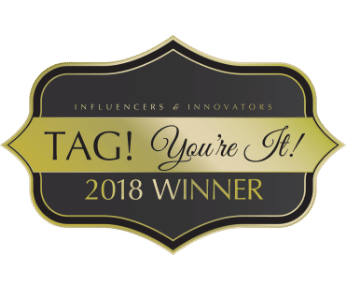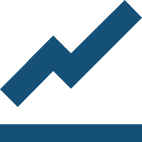00:00:06:16 – 00:00:45:00
Mara Shorr
Welcome to Shorr Solutions: The Podcast. I’m your host, Mara Shorr. I’m a partner in the cosmetic and aesthetic medical practice management consulting company. Yes, Shorr Solutions. Listen up as I chat, converse, strategize and commiserate with special guests, influencers, friends, and colleagues who are all in the cosmetic and aesthetic medical space too. It’s time to listen, learn, and get inspired. Welcome to Shorr Solutions: The Podcast.
00:00:45:02 – 00:07:35:15
Mara Shorr
With this episode of Shorr Solutions: The Podcast. This is a really special episode because today’s guest is not only a colleague and someone that, to be honest, we met at a conference many, many years ago and quickly became fast friends, bonding over great wine, our passion for great systems inside a practice. And she is just a fellow bad ass, if I do say so myself.
So I am so thrilled to welcome Jérômine Pantanacce. She is the practice administrator for Dr. Michael A. Persky in Encino, California, and we have kept in really close contact during everything COVID related over the past few months. We normally will keep in touch over all things in general, but this has been a really special month, especially given the constant changes that are going on in the world with Corona and in practices themselves.
And so with this particular episode, we are going to really focus on what it’s like being inside the practice and the big decisions. She’s had to make as a practice administrator and how she is balancing quite a few issues as practice administrator. So Jérômine thank you so much for being on the podcast today.
Jérômine Pantanacce
Hi, Mara. Thank you for having me. It’s a little special for sure to be on this platform. And thank you for having me. I appreciate that very much.
Mara Shorr
Absolutely. I’m just, it’s great for us to be able to have this particular set of conversations. And it’s funny because we were talking before we hit record and finally said, let’s go ahead and hit record because there are so many things that we want to cover in our short conversation today and it’s really an incredibly unique time.
So can you start off by just giving like a 30 second version of who you are, your role in the practice and how you came to the practice? And then we can talk about the good stuff, the guts and the glory of what’s going on right now.
Jérômine Pantanacce
Sure. Well, the quick synopsis of me and my presence in my office, I started seven years ago. I met Dr. Persky, and I am very blessed to not only work for him, but call him my friend. He’s an incredible human who has his hand on his heart. And I know you know Dr. Persky, so you know what I’m talking about.
Mara Shorr
Yes. He is wonderful!
Jérômine Pantanacce
he is. About five years ago, I became his director of operations. It’s a big title, but it really is encompassing all of the facets of the practice that I solely take care of, whether it’s from marketing to contract, negotiating to HR to patient coordinating. We’re a small practice. We’re very boutique like. And and I admittedly like to control things on my own. So it was an easy choice.
Mara Shorr
You and I are control freaks.
Jérômine Pantanacce
No, not at all. So that’s what I do. In addition to, you know, repairing broken chairs and hanging paintings and redecorating as needed and cleaning.
Mara Shorr
Other duties as assigned.
Jérômine Pantanacce
It’s Jay of all trades, really should be my title. But it’s to really be a leader within leaders for doctors. It’s being I think it’s a position it’s underexplored for doctor where they often don’t have a right, an administrative right hand that can handle other things that doctors shouldn’t be worried about. So I’m happy to be doing this for Doctor Persky for seven years.
Mara Shorr
And there is you know, there really is too. There’s a difference between somebody that, oh, they rise to a practice administrator level because they’ve been there the longest. And somebody that comes with a really strong background, strong passion for systems, a grasp on financials, analyzing the P&L, the profit and loss statements and all of that goes into the role that that you do.
And that’s something that we’ve always admired, you know, and Jay, Jay Shorr, my father and business partner Jay and I talk about that all the time. Whenever we have the opportunity to sit down and have dinner or drinks together, we always walk away like, you know, Jay because obviously you go by Jay for short too…
Jérômine Pantanacce
I do.
Mara Shorr
You always say that you just you have such a great grasp on that. So given your incredible knowledge, so you were essentially when the practice temporarily closed down, I always make sure to note that the practice is not permanently closed down. When the practice temporarily had to close its doors due to COVID 19. You then basically took to home for the time being.
And now as we fast forward through time, there is now talk in different states are opening up at different rates and on different timelines. You’re based in California, so your practice is in California. And so now there is talk of when the practice will open back up again. Right. So what the conversations are now and a lot of the conversations we’ve had on the podcast previously and I’ve had with other guests centers around what to do to be productive from home while practices are home.
So with this conversation we’re talking about now that the practice is getting ready to reopen and there’s a couple of things that come into play, there is going to be a shortage of certain PPE. There is, and your practice is a surgical practice. So we run into certain, you know, certain medications and anesthesia and different things that are not available in the amount that they once were.
And so you’re going to end up running into that ordering of supplies and then communication of messaging. And this, it could become very divisive when opening back up and different different owners had different partners and different providers have different thoughts. So can you talk about as your practice gets ready to open back up, right, as Doctor Persky practice gets ready to open back up, what is it that the conversations you’re having with the team, what is what are the decisions you’re having to make as an administrator in the practice, and how are you handling some of those conversations and decisions.
00:07:36:15 – 00:13:38:19
Jérômine Pantanacce
Great question. Many, many layers, my dear friend? Okay. I think what’s very important to highlight is that this is a real safety issue for everyone, not just at risk, the elderly, the chronic disease, that it’s everyone everybody is entitled to an opinion. And how do you mitigate that opinion while being compassionate to everyone’s need from employee, employer, doctor, nurses, whoever you have in your office?
And and it’s hard to move forward because when you have four or five people. Yeah, that’s it’s not easy. But I can only imagine practices that have 25 plus employees and everybody is giving their time chiming in. So how does one person reconcile everyone’s wish without compromising safety that it’s legal? You know, because as employer, we have the dawning of legality.
It’s not just a matter of, well, this is what I want to do. And then, you know, it became really complicated in many, many facets of the practice. And I think it’s the same challenges that a warehouse has. It’s the same challenge that the groceries has. I think that what I have envisioned so far, and this is what we’ve been putting to place is constantly reassuring that safety, reassuring ourselves and reassuring others that safety is number one.
That is truly a priority, that we are not going to make a move if it’s not safe.
Mara Shorr
Yeah, and you and I were just talking even before we hit record that one of the things that you and I always say, we say it in lectures you and I talk about this in conversation is that safety comes first. Safety not only of licenses and protection of providers licenses, making sure you’re doing the right thing, but protection and safety of your patients and protection and safety of your team, your staff, your providers.
I mean, that’s the thing. Because if you’re not safe in how you’re doing this, nothing else matters.
Jérômine Pantanacce
Right? Exactly. It could be demoralizing to employees feeling that they are they are feeling are not being counted for that we’re not providing, obviously, that would never be the case. But say we were very nonchalant about mask wearing. The liabilities would be tremendous. God forbid something happened. So, yeah, it’s really important for me to make an extra point every time I talk to my people.
It’s safety first. And then from safety we create new SOPs. I mean, there’s just that’s the only thing we can really do because frankly, for me, what’s helpful is what is it that I can control at the moment, Right? It’s not about predictions, opinions and political point of view. It is about really what can be controlled. I talk to my vendors, they tell me that I am on allocation for X amount of time.
They’re telling me that I can order. We’re hitting maybe five different accounts, supplier account as opposed to just narrowing it down to the cheapest because we may need to spend a little bit in order to accommodate the safety level that is owed to each and every one of us.
And also having the support, you know, the support of other like facilities where we operate at and, you know, we operate with a freedom vision and then see now. And they were super gracious to letting us know that they ordered quite a bit and then they they’re willing to share to everyone.
And that was the intent. The intent was not to hoard for themselves, but it was we have the purchase power and we’re going to buy it and then we’re going to distribute it, which I thought was very in solidarity. Really great to do that.
Mara Shorr
You know, one of the things you touched on, too, was that this is going to require a whole new set of SOP, standard operating procedures. And whether you’re in the medical community, whether you’re in, just like you said, whether you are looking at warehouse. Right. Any really any type of industry. But for this, the sake of this conversation we’re talking about medical practices and it’s a whole new set of SOPs that are needed.
And I know we work very heavily. We’re working with our clients in creating everything from phone scripts to, you know, this is how you answer patient questions about safety to sanitization logs and sanitization protocols, how often and who is going to wipe down the doorknob, as silly as that sounds. But you need to make sure because if everybody assumes somebody else is wiping down the doorknob, then the doorknobs don’t get wiped down.
What happens from the time that a patient pulls into the parking lot until the time that they walk out your door and pulling together those really the standard operating procedures for everything. What would you say are maybe the top three that have changed? And I mean, and there’s so many. So what would you say are the top three things as far as SOPs you had to implement?
And do you have concerns about this new way of life and adapting once the practice opens back up? Because we know that It’s all about…
Jérômine Pantanacce
Great question
Mara Shorr
Sometimes with our teams, we have to reiterate things again and again and again and there is no room for error like there used to be when it comes to safety. Yeah.
00:13:40:05 – 00:15:47:07
Jérômine Pantanacce
Well, the biggest change is to implement mask wear from within the office at all times, every single person will wear a cloth mask, which by the way, is mandated in the city of L.A. and we have to supply this for our employees because that is essentially part of the uniform as well, which is not an issue. Obviously.
So to answer your question, one of the biggest changes is mask wear for patients as well. If patients don’t have a mask, of course, we’ll be happy to provide them with a mask. And also it’s going to be one patient per hour at the beginning. So that is going to be the biggest change. The idea is that we’re going to minimize how many people there is in the office and that there shouldn’t be anybody waiting. So if you have a 9:00 appointment, and you’re coming in for, say, fillers and Botox. You know, if 20 minutes later you’re done. So there’s this rule of flow that will allow patients to never cross back and to allow everyone in their respective corners to be responsible for cleaning their area. In other words, my medical assistant is in charge of the rooms where she works every day, and that is her responsibility to bear as far as wiping and doing what she does.
Mara Shorr
And here’s a question too. So knowing that when you and I are big on on checklists and numbers and so by what amount have you increased your as far as the inventory supply of cleaning supplies And how is that changed from normal practice? They say, well, we have a cleaning crew that comes in and handles this. So to you, in other words, are you say we are ordering four times the amount of Lysol wipes that we used to order, Right.
So how are you handling that from a chain supply and I guess touch on that too.
00:15:48:12 – 00:19:59:03
Jérômine Pantanacce
Sure. Well, frankly, it’s kind of a funny subject because we have cleaning supplies to begin with. Are we going to go through more cleaning supplies? Certainly. Has it been a challenge to find Clorox or Lysol wipes? Yes, but bleach to the rescue, 10%, bleach, 90% water works great! pouring and it’s like it’s kind of like the same idea of why people rush to get paper towels all of a sudden.
It’s kind of the same at this level. Now, It’s very interesting how a lot of people are a little bit stuck in their habit of consumerism where you can just easily adapt. Yeah, okay. We did that X amount of years ago, but also it’s not eco friendly to go through all those wipes and you know, and we’d like to be as eco friendly as much as possible in our office.
So, you know, and what can we use that’s efficiency. Obviously, we’re not going to use rag, you know, over and over again. But there’s ways for us to be to continue being clean the way we’re expected to be. So I think this is really the challenge. But other than that, it’s really it’s not business as usual as far as cleaning is concerned, but almost it is because if you’re doing what you’re supposed to be doing it to begin with, you shouldn’t need, you know, extra crew.
But we are going to clean diligently ourselves because I do not trust it’s maybe sad of me, but I do not trust the night cleaning crew to do what they’re supposed to be doing. So we just do it ourselves.
Mara Shorr
You and I, we’re very much, “I believe it if I see it.” You know, one of the things you and I talk about, too, is that there are a lot of businesses and a lot of practices, yours included, where there are. And honestly, our business has more than one owner. And so it’s in our business Shorr Solutions.
It is Jay, my dad and myself. And so and our opinions on things don’t always align. And sometimes it’s how we communicate something to our team. Sometimes it is how we communicate things to our clients or in marketing messaging. And so we have to sometimes rail it back in, review it, and, and try again. And we’ve run across quite a few practices in the many years we’ve been consulting, because we’ve been consulting for nearly a decade now, which is still crazy to believe because I feel like we’re just starting out, but in my mind I’m also much younger than I am. So there we go. You know, we’ve come across many practices where there are more than one owner and more than one partner. And sometimes it might be that they’re technically business partners, sometimes it might be that there’s more than one provider or more than one surgeon in a practice.
And with that comes different viewpoints. Like you said, everybody has different opinions. Opinions are like, you know, everybody has one, right? and just so everybody knows that’s listening to the podcast, Jay and I, we said we would promise ourselves we wouldn’t swear on this episode because sometimes we get together and we, you know, have a couple of drinks and we swear not at each other, but because we’re just.
Jérômine Pantanacce
Obviously.
Mara Shorr
We’re strong minded women. So that being said, knowing that everybody has opinions, right? How do you and how are you handling the because you’re in on a lot of higher, high level conversations that the rest of the team might not be on. Right. As the as an administrator, you’re in on a lot of high level conversations. How are you handling any discrepancies that may arise between having more than one provider and then making sure that that flows down very, I don’t want to say seamlessly, but as seamlessly as possible to the team so that everybody is on the same page because safety is an issue, right?
So everybody has to be on the same page, Everybody has to be on board. So how are you handling that and what advice would you give?
00:20:00:23 – 00:31:35:23
Jérômine Pantanacce
Well, okay. Multi layers again, Mara, bear with me. But to answer your questions, I think most importantly, you start with from me at least so that I keep my sanity through this is extending compassion and understanding that everybody is really going to feel differently because it’s adapted to their need. And COVID has really tapped into the biggest fear for humans, which is belongings.
And death so these are really hot topics. And the challenge is for me to kind of always bring it down to what I was saying earlier. Let’s focus on what we can do. What we can do is prepare. In my opinion, you cannot be overly prepared, right? It’s not about hoarding right now. It’s about being prepared. And so and furthermore, because there’s such a lack of supply there, we are unable to hoard even if we wanted to.
So how do we do this in a sophisticated way? And how do I look at myself in the mirror every single day? Because that too matters. There’s a line of philosophical issues that have happened through this. There’s a lot of ideology that has been brought up. There’s a lot of political point of view that has been brought up.
And I approach it in a dysfunctional relationship in the sense that we must compromise. And where there is compromise, there’s dysfunction, Right. So opinion only. Okay.
Mara Shorr
We’ll take it. We’ll take the opinion. Right. Everybody has one!
Jérômine Pantanacce
What I’m saying is not universally true. And I don’t claim it’s to be true and I’m saying it’s true for me. And so that is a challenge because when we have doctors or employees or, let’s say a medical assistant is ready to do X while the receptionist is doing not ready to do the same, there’s just dislike and we’re all very codependent right now.
And so narrowing it down to a compromise that everybody can live with is a challenge. It’s doable, but it’s a challenge. And again, there’s a lot of ego that’s involved as well, and that is also something that’s really difficult, mine included. You know, I’m not pointing out fingers, it’s mine included, because like I said, again, I would like to come out of this with poise, with my integrity completely intact.
Mara Shorr
And you and I were both listening to webinar last night. I sat on a webinar with, you know, with a panel of other physicians, other surgeons and doctors of different specialties last night.
Jérômine Pantanacce
And we saw it last night, by the way. Exactly.
Mara Shorr
Different spectrum. And that’s exactly what I was going to touch on, is that we see different, you know, different practices, not even necessarily based on geography or specialty, but based on people. And certain people are comfortable with a, you know, a mask that is a reusable cloth mask versus a 95 mask versus, you know, a pseudo spacesuit at this point.
And so everybody’s different. People are taking different precautions. And it comes down to having a lot of those conversations. Luckily, the doctors are scientists, and so being able to present them with science is easier than it’s not a perfect system, but it’s easier than somebody who has no scientific training or no scientific knowledge whatsoever. However, it all comes down to opinion.
I think it comes down to opinions on this one.
Jérômine Pantanacce
Yeah. I mean, and if I may, with the obvious due respect to doctors and the doctor community. A doctor is not a scientist. A doctor is someone who understands science more than the average, but a doctor who doesn’t practice infectious disease in depth on a regular basis may not be the most equipped to have an authority and a leading opinion.
It doesn’t mean that certain doctors don’t understand it more than others. It doesn’t mean that some doctors are really into it and, you know, go deep into understanding it, obviously. But that’s true thanks to Google. It’s true for everyone who is a little book smart, who wants to look at things up and really understand what this is. There’s just such lack of evidence of data all around.
Mara Shorr
And again, it’s hard to make decisions.
Jérômine Pantanacce
It’s a huge it’s a huge issue. And absolutely it’s a huge issue because we’re basing our opinions on opinions, not necessarily facts. There are a few facts. The few facts is that there’s nearly 60,000 people that died in two months. That’s a hard fact that we mustn’t forget out of solidarity, out of compassion, out of just a humanity point of view.
How can we do this safely, efficiently? How can we be prepared? How can we start being, you know, generate peaceful revenue, keyword, peaceful revenue? Right. I understand everybody is super eager to get cracking. I get it. Everybody is. It’s not just plastic surgeon and things like that. But I think what happened to me, if you don’t mind me sharing this with me and feel free to edit that.
I think a lot of various specialties were deemed unnecessary and then most have affected them from a psychological point of view. Here you have Doctor Persky, who’s been in practice since 1985, who’s had an EMT practice most of his career, and all of a sudden being deemed unnecessary has got to affect some people thinking, Wow, I dedicated my life to medicine, whichever that may be like something that maybe the anxieties that it eradicates a little bit what I did before, because I don’t matter anymore for the community or, you know, and I’m not saying those are what he posed to himself, but I think that those are feelings I can easily understand and sympathize with in the sense that I felt incredibly useless all of a sudden.
Mara Shorr
That’s such an interesting point, is that you have somebody that puts their their blood, their sweat, their tears, and they you know, they’re growing. They’re growing. They’ve done so much. They’ve done so much in the community. They’ve done so much for their patients. And they have such a strong level of education. They’ve just in they’ve grown and grown and grown and then they’re deemed almost overnight, quote unquote, you know, unessential.
And I think that that there is and I, you know, I think to have additional conversations about the psychology of what this has done. And I think that as we get back to work, I’m curious to see what that shift is going to be because I think that it’s going to cause a big shift.
And I know we’ve gone through on the consulting side because we work with you know, we work with the providers and we work with the practice owners. And so we’ve had so many conversation where they’re also frustrated because, you know, we talk about the psychology and the mental health component and not on a I’m not talking about as a licensed psychologist or a licensed mental health therapist.
I’m certainly neither of those things. But they’re they’re struggling. They’re frustrated. They want to get back. They’re used to going, and going every day. And so we see now they’re literally staying home within their four walls, so.
Jérômine Pantanacce
With their spouse. I mean, that’s life. And that’s got to be tremendously stressful.
Mara Shorr
For some it’s a great thing, and for some they’re going nuts and a lot of TikTok videos come out of this. But, you know, I think the majority of our clients really want more than to just stay home all day and make TikTok videos with their spouse and their kids.
Jérômine Pantanacce
You know, I thought, Dr. Persky shared something with me that was just so beautiful. And it’s just such a testament to who he is. He was telling me and there early and we start seeing patients before the stay at home order. I think it was March 11th when we stopped seeing patients. And then the stay at home order was the 19th or 16th if I’m not mistaken and then we’re maybe couple of weeks into a lockdown.
And Dr. Persky shares with me, he’s like, you know, I’ve never seen sea Spring coming in since I’m like 15 years old. How cool is that? How cool that in this moment, you know, for me, like this is gold in the sense that this is what it’s kind of about for me going back to necessities as it’s a little bit of an oxymoron.
I know, but going back to necessities and embracing what matters, seeing beauty in the moments, recognizing take a moment and a breath. Which doctor do you know that has taken six weeks off? Which doctor does not really need it?
Mara Shorr
Outside, right. Outside of COVID? I mean, that’s the thing, right? They don’t you know, they don’t do that. And because it’s the go, go, go, go, go. And there’s a and there look, there’s a variety of reasons, There’s financial reasons. There is there’s passion reasons. They’re passionate about what they do. There’s the control reasons. You know, a lot of us and I say this as a business owner, I’m like, What do you mean?
I’m going to take more than a week off at a time. That’s crazy, right? Right. So I took rest and I took gosh, I think we took a week and a half off last year and I said that was the longest I had taken off and I don’t know how long. So I get that, you know, And I think that there’s so many different facets when coming back to work and there are there’s always three things that I ask at the end of every podcast, and I’m going to shift them a little bit differently, given that our entire conversation centered so strongly around COVID, so normally there are three questions that I ask, which is what is one thing you learned that you would like to share? What’s one thing you would do differently? And then what are you most proud of, either personally or professionally? And so I think that given that our whole conversation centered so strongly around COVID, I think that maybe it was your answers about how are there COVID related answers that you can have.
So what is one thing that you learned during COVID that you want to share? What is one thing that you would do differently maybe to make the transition easier, opening back up? Is there something that you would do differently? And then what are you most proud of?
00:31:38:00 – 00:37:57:07
Jérômine Pantanacce
This is tough. This is like a prep time. But yes, okay. What I have learned is the codependency, the level of codependency that we all have not in my office, but my office building, my landlord, my parking guys, the janitor, the OR, within the OR, whoever is in the OR. And that kind of like really truly knocked down because I’m a guilty one in a sense.
When there’s a system, you take the system for granted. You don’t even think about it. It’s autopilot. You schedule something and then the rest follows. But, this time you realize that I may be ready to rock and roll. But guess what? If my receptionist is not ready to rock and roll, then we’ve got an issue. And my receptionist is gold.
Mara Shorr
Yeah.
Jérômine Pantanacce
And my medical assistant is gold. And all the people that make this possible. So that I would say is it’s not new, but I think it’s a realization and how big we all are in terms of interconnectedness. That’s a word.
Mara Shorr
Yeah.
Jérômine Pantanacce
I’m French. Disclaimer.
Mara Shorr
That’s the accent. It is not a New York, or Georgia accent.
Jérômine Pantanacce
So that’s what I’ve learned.
Mara Shorr
What would you do differently either in, you know, if you’re six or eight weeks ago self, what would you have done differently?
Jérômine Pantanacce
So it’s not in retrospect, but it’s just something that I wish can be done. But I feel that I’m a little bit of an impasse with that particular subject. I feel very strongly about a couple of aspects of upcoming choices and I want to be heard loud and clear on it, and I’m not sure that’s possible. So that’s a, you know, doing things differently is there are things that I’m just not I just don’t feel good about and I really want to feel good about every single aspect of our decisions.
And but obviously this is from an egocentric point of view, right? Those are my wishes. It’s like I said, it’s dysfunctional relationship, right. Where it must be compromised.
Mara Shorr
So I think that, yeah, we all within all of this, I think that we there are always things that have made us all uncomfortable somewhere along the line and it’s how long are you uncomfortable and how uncomfortable are you and.
Jérômine Pantanacce
How much are you willing to put up with.
Mara Shorr
Exactly. Yeah, exactly. Yeah. And then what are you most proud of?
Jérômine Pantanacce
I don’t know. I don’t. I don’t love that word in the sense that I never think of it that way. Not really. It’s not really who I am or how I think. What I can tell you is I’m proud of my office for being so flexible. Super game always available and and accepted my leadership pretty blindly and that I’m very grateful for it.
You know, I, I think that has been solidifying certainly our professional relationship even more. We’re small teams so we’re pretty tight and and I think I did take really good, strong catastrophic action from the financial aspects for the practice very early on, which I think saved us a lot of aggravation. So I’m proud of that. Again, it’s like, I don’t know, do I think that I did right thing?
Yes. This is the nuance making sense.
Mara Shorr
It does. It does. And I think that it’s always interesting when I ask this question, because certain people have the answers right away and certain people they have to think a little bit more about it and and dig a little deeper. And we had somebody that said, I don’t think I’ve done the thing I’m most proud of yet.
And I think that, you know, we have all sorts of answers. So I think that’s a great way to that’s a great way to wrap it up. Is there anything else that you want to share as we are wrapping up this particular episode of the podcast, is there anything else you want to add?
Jérômine Pantanacce
Well, other than thanking you again for having me, it’s been a pleasure. And you’re just such a strong woman that I admire and I love the way you think and I love kicking it with you. I do want to say that for my peace of mind. Also is I want everybody to ask themselves one question. Okay. And that question is, if you’re making a decision on something, what is the purpose of that decision?
And just take the time to sit with it, you know, because that I think is important. Making decisions for the sake of making decisions is purposeless.
Mara Shorr
And I think that’s a great I think that’s a great place to end. And thank you so much for being on the podcast today and just being a supporter or supporter of the industry, supporter of doing, you know, doing what’s best, doing what’s right, supporter of, of strength and it’s always my absolute pleasure to get to sit and dig a little bit deeper with you because I think that’s that is the joy is that we always get to dig a little bit deeper and it’s not as an amicable conversation.
And so thank you so much for being on the episode.
Jérômine Pantanacce
Thank you. You enjoy this beautiful day. Be home and safe.
Mara Shorr
Absolutely. Absolutely. And I think for everybody to be wherever they feel that they are most safe, too, because that’s that’s the important part.
00:38:03:23 – 00:38:34:13
So that wraps up today’s episode of Shorr Solutions: The Podcast we hope that you’ve gotten as much out of this episode as we have. And if you have, I’d love for you to like it, rate us and share this episode with your friends, colleagues and the rest of your team. If you aren’t yet on our e-newsletter list, now’s the time to join at www.shorrsolutions.com and click on the E-newsletter button in the top right hand corner. We’ll see you next time and remember, subscribe and leave us a review.














